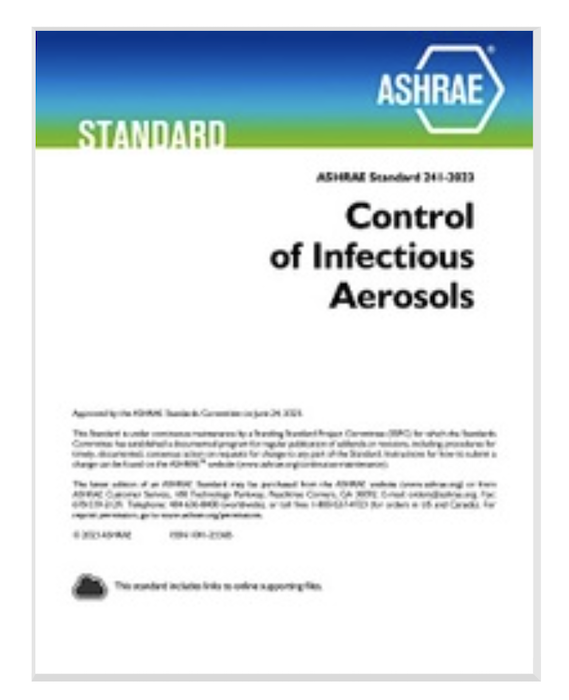
Standard developed to reduce risk of indoor disease transmission
June 28, 2023
By CCE
In the wake of the global COVID-19 pandemic, the newly approved ASHRAE Standard 241, Control of Infectious Aerosols, establishes minimum requirements to mitigate the risk of disease transmission in buildings by exposure to airborne infection.
Infectious aerosols are tiny, exhaled particles that can carry disease-causing pathogens, remain in the air for long periods and be inhaled by others. Use of the new standard would reduce exposure to SARS-COV-2 virus, which causes COVID-19, along with influenza viruses and other major pathogens.
Standard 241 provides requirements for many aspects of air system design, installation, operation and maintenance. An infection risk management mode (IRRM) applies during identified periods of elevated risk of transmission, such as during flu season, thus introducing the concept of resilience—i.e. the ability to respond to extreme circumstances, beyond normal conditions—into the realm of indoor air quality (IAQ) control.
The standard also provides extensive details for the use of filtration and air cleaning to effectively and safely meet equivalent clean airflow requirements. These include tests to establish performance and demonstrate operation does not degrade IAQ in other ways, e.g. by elevating ozone levels.
“By implementing the requirements, we can improve the well-being and productivity of building occupants,” says 2022-2023 ASHRAE president Farooq Mehboob. “This standard is an essential tool for creating healthier indoor environments and promoting sustainable practices.”
